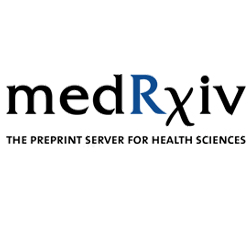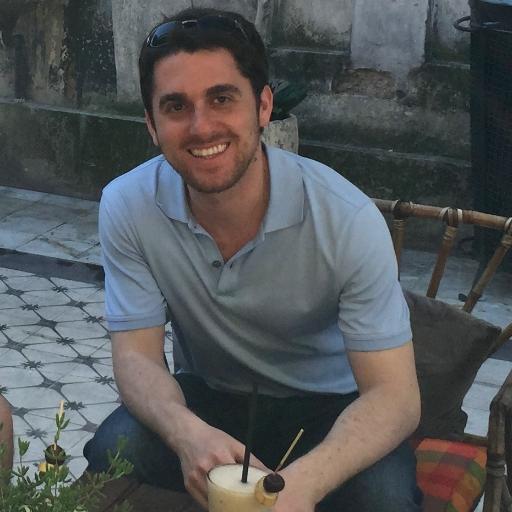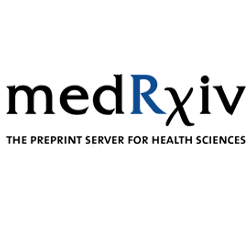
Matthew Neville
@MDC_Neville
Followers
202
Following
245
Media
9
Statuses
58
Postdoctoral scientist @sangerinstitute in Cambridge, UK with @R_Rahbari and @mehurles. Sperm sequencing, de novo mutation, and somatic evolution.
Cambridge, England
Joined May 2020
Excited to share our new preprint in which we address: (1) Accurate sequencing of sperm at scale (2) Positive selection of spermatogenesis driver mutations across the exome (3) Offspring disease risks from male reproductive aging [1/15] https://t.co/gK0eGqXo4g
medrxiv.org
Mutations that occur in the cell lineages of sperm or eggs can be transmitted to offspring. In humans, positive selection of driver mutations during spermatogenesis is known to increase the birth...
1
39
117
If blood has clonal haematopoiesis… sperm should get clonal spermatopoiesis, right? 😉 Two great @Nature papers shed new light on how mutations drive clonal selection in sperm stem cells: 🧬 Neville et al. 👉 https://t.co/kMKNiXFHZx 👨👩👦 Seplyarskiy et al. 👉
4
29
120
See Sanger Institute article here: https://t.co/1QqCN8Dhyu And a great article my Michael Le Page here: https://t.co/E0mnv8A517 [3/3]
newscientist.com
Older men are more likely to pass on disease-causing mutations to their children because of the faster growth of mutant cells in the testes with age
0
1
5
See below for tweetorial. If you saw the preprint, main results are unchanged but many small improvements thx to reviewers + variant calls now accessible [2/3] https://t.co/M77sZgbGcJ
Excited to share our new preprint in which we address: (1) Accurate sequencing of sperm at scale (2) Positive selection of spermatogenesis driver mutations across the exome (3) Offspring disease risks from male reproductive aging [1/15] https://t.co/gK0eGqXo4g
1
0
3
Our work on sperm sequencing is now published! See below for: 🧑🔬Scientific tweetorial 📰 Accessible articles discussing implications for aging fathers [1/3] https://t.co/2RfNF0jk9N
nature.com
Nature - A combination of whole-genome NanoSeq with deep whole-exome and targeted NanoSeq is used to accurately characterize mutation rates and genes under positive selection in sperm cells.
3
37
146
Important to clarify this point. I work in a lab pioneering sequencing technologies to identify mutations from single cells at large scale. While eggs get chromosomal abnormalities w/age it is sperm, not eggs, which gets more mutations. See great work from @MDC_Neville.
@PoThePerson Worth it. Older eggs & sperm can accumulate genetic mutations and epigenetic changes that increase health risks, such as developmental disorders or chronic diseases, which c an be inherited by children and potentially passed on to your grandkids, etc.
11
20
171
Happy to see our new paper out! A great collaboration with @jeshoag. We collected sequential sperm samples separated by decades, and used high-fidelity sequencing to measure germline mutation rates in individual men. https://t.co/jf9XkaKsZY
nature.com
Nature Communications - Mutations accumulate with age in the male germline, and can lead to genetic diseases in offspring. Here, the authors collect from individuals sequential sperm samples...
New paper from my group and @giladevrony’s! https://t.co/AGS3p55Qap Historically we measured new mutations in humans using trio studies (parents and offspring). This taught us that on average new mutations increase in offspring with paternal age. These trio studies showed
1
4
16
Excited to share our preprint: Cohort-level analysis of human de novo mutations points to drivers of clonal expansion in spermatogonia! We developed methods to uncover drivers of clonal expansions in sperm (CES) using 55k disease trios & gnomAD SNV data. https://t.co/M5Ojbdn4Ya
medrxiv.org
In renewing tissues, mutations conferring selective advantage may result in clonal expansions[1][1]–[3][2]. In contrast to somatic tissues, mutations driving clonal expansions in spermatogonia (CES)...
1
9
24
II'm excited to finally share our study on the mutational landscape and selection dynamics in sperm, now live on medRxiv: https://t.co/S5VzzvOrA1. We explored how positive selection impacts mutation rates, especially with age. Here’s a quick thread on our findings! 🧵👇
medrxiv.org
Mutations that occur in the cell lineages of sperm or eggs can be transmitted to offspring. In humans, positive selection of driver mutations during spermatogenesis is known to increase the birth...
3
14
41
Excited to share our latest work. We introduce an improved version of NanoSeq, a duplex sequencing protocol with <5 errors per billion bp in single DNA molecules, and use it to study the somatic mutation landscape of oral epithelium in >1000 people. 1/n
medrxiv.org
As we age, many tissues become colonised by microscopic clones carrying somatic driver mutations ([1][1]–[10][2]. Some of these clones represent a first step towards cancer whereas others may...
9
88
237
Huge thanks to @TwinsUKres volunteers & researchers, @R_Rahbari who led this work, @mehurles who co-supervised this project, @imartincorena and team for their insights and support with NanoSeq, @RasheshSanghvi, @MimyPham, @ATJCagan, and many others. Feedback welcome! [15/15]
0
0
9
These findings show the power of sperm sequencing for understanding positive selection and offspring disease risk. They also raise many new questions that we’re excited to follow up on… [14/15]
1
0
2
What about the genes which aren’t currently associated with disease? We find that 4 of them have excess loss-of-function variants in healthy populations, suggesting that they are over transmitted to offspring but are at least partially tolerated [13/15]
1
1
3
This suggests that positive selection in spermatogenesis is driving a much broader disease risk in ageing fathers than previously appreciated. We caution however that not all disease mutations in sperm will necessarily appear in live births at the same rate [12/15]
1
0
4
Assessing the % of sperm per individual that have a likely disease mutation in their exome, we find a striking ~3-fold enrichment over expectation. Currently, we can attribute ~55% of this enrichment to known driver mutations under positive selection [11/15]
1
0
3
The novel genes are mostly known cancer and developmental disorder genes, but unlike previously known genes, most are enriched for loss-of-function (LOF) mutations rather than missense hotspots and they are linked to diverse pathways [10/15]
1
1
6
We detected >35k coding mutations in sperm, equivalent to yields from sequencing >20k trios (!). Using dN/dS tests, we replicate 9 of 13 previously known genes and identify 31 novel genes under positive selection in sperm [9/15]
2
2
5
Can we investigate this at scale in sperm? An updated NanoSeq protocol unlocks our ability to deeply sequence coding regions in sperm. See the method and incredible insights into somatic evolution from @imartincorena and team here [8/15] https://t.co/5IdZoHzqra
medrxiv.org
As we age, many tissues become colonised by microscopic clones carrying somatic driver mutations ([1][1]–[10][2]. Some of these clones represent a first step towards cancer whereas others may...
1
0
3
To date 13 genes have been linked to this effect. Critically, all 13 are causal for severe developmental disorders, leading to increases (up to 1,000-fold) in the sporadic birth prevalence of these disorders, with a strong correlation to elevated age of the father [7/15]
1
0
4
Next, we investigated positive selection of driver mutations during spermatogenesis. This effect was uncovered and has been extensively characterised by the Wilkie and @GorielyLab groups. A summary figure of theirs here [6/15]
1
0
4
Applying NanoSeq to 81 sperm samples from men of the @TwinsUKres cohort aged 24-75 we find mutation accumulation in sperm consistent with testis sequencing (Moore et al, 2021) and gold-standard rates from trio sequencing (Sasani et al, 2019) [5/15]
1
0
2












